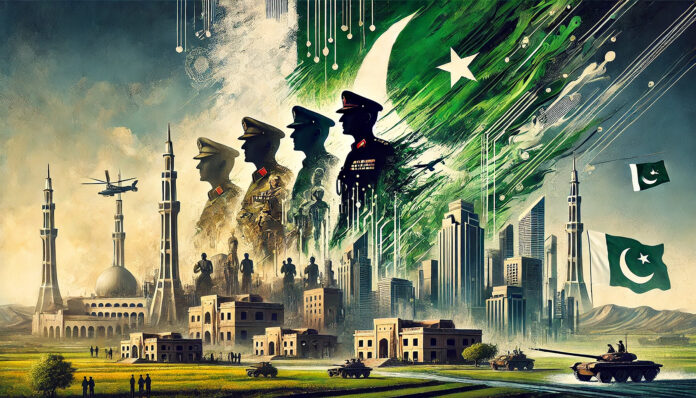When the political repression gets to a point where even the economic publications cannot ignore it, you know things are getting bad.
At Profit, we like to leave the political analysis to other publications and stick to our lane of business and economics, but given the state of Pakistan’s polity and the rank uncertainty prevailing even as the macroeconomy stabilizes, we must return for a second time to finish off an analysis we started two weeks ago: what is the core structure of Pakistan’s political economy, how has it changed over the past few decades, and what direction is it taking?
In the last piece, we argued that a core feature of Pakistan’s political economy from the 1880s through 2008 was feudalism, and that its time has essentially passed. We alluded to what changes would result from that transition. In this piece, we will delve into those changes in more detail and examine the possibilities of what could come next and explain, to some extent, why political repression in Pakistan getting worse may well be a sign that things are about to turn a corner.
We will also state our conclusion up front: we believe the current iteration of hybrid regime – however long it lasts – is the last time non-democratic government in Pakistan will work. Democracy is the only form of government that will deliver political stability to the country from here on out.
Yes, we are aware of who is in control of the country right now, and how absolute their control is for the moment. We still say this is the last time they will be able to make it work.
To understand why we say that, let us start with a discussion of patronage networks, and the legitimacy that they deliver to any governing regime that relies on them. The content in this publication is expensive to produce. But unlike other journalistic outfits, business publications have to cover the very organizations that directly give them advertisements. Hence, this large source of revenue, which is the lifeblood of other media houses, is severely compromised on account of Profit’s no-compromise policy when it comes to our reporting. No wonder, Profit has lost multiple ad deals, worth tens of millions of rupees, due to stories that held big businesses to account. Hence, for our work to continue unfettered, it must be supported by discerning readers who know the value of quality business journalism, not just for the economy but for the society as a whole.To read the full article, subscribe and support independent business journalism in Pakistan










This is NOT a Swan song of The Establishment. I disagree with some of the analysis.
A glaring omission is the correct answer to the largest land-holding landlord in Pakistan. It is the Military and the Establishment. From Urban to rural areas of Pakistan.
The Establishment can and will if required fill the gap being left open by the land holding elite.
Furthermore, the Military and the Establishment still have links with the majority of the mainstream religious hierarchy and in mosques spread across the country that it can leverage effectively as is done in the Gulf and Arab states.
Hence – imho – Not a Swan song of the Establishment – but an evolution into a more complex organism responding to the demands of the time.
The day the Establishment stops growing to address the needs the times – will be the day of their Swan Song. Not before.
It doesn’t matter how much the establishment has changed because it is the violence which is intrinsic to the Pakistani society that is holding Pakistan back.